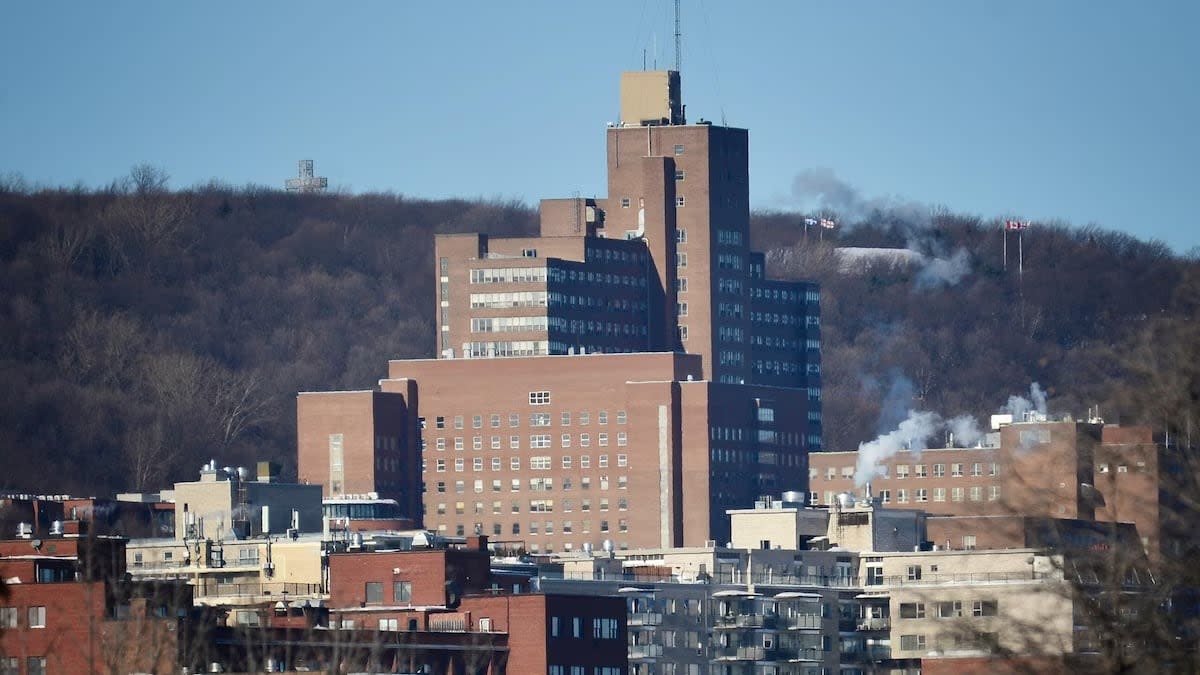No break for Quebec hospitals as ERs surge past 100 % capacity

Quebec's emergency rooms are once again surging over capacity. As the province gets ready to usher in the new year, many Quebecers are coming down with respiratory viruses and heading to the hospital.
The numbers have been steadily climbing above 100 per cent every day since Dec. 27, following a four-day period when average occupancy rates dropped below 100 per cent for the first time since Nov. 12.
As of Sunday morning, the average stretcher occupancy rate in Montreal was 125 per cent, according to Index Santé. The Royal Victoria Hospital was at 221 per cent, the Montreal General Hospital at 184 per cent and Lasalle Hospital at 180 per cent.
Other regions have also been hit hard. The average occupancy rate in the Laurentians was 151 per cent with Mont-Laurier Hospital at 220 per cent.
The average occupancy rate in the Lanaudière and Montérégie regions were at 175 and 142 per cent respectively. In the latter region, Barrie-Memorial Hospital was at a whopping 280 per cent while Anna-Laberge Hospital was at 181 per cent.
The Mauricie-Centre-du-Québec and Eastern Townships regions were both averaging 114 per cent while the Capitale-Nationale region was at 106 per cent.
Earlier this month, the association of doctors in charge of the province's emergency rooms, the RCUQ, penned a letter to Quebec''s Health Minister Christian Dubé, warning that the situation in Quebec's ERs was "out of control."
No surprise
Despite the uptick, Dr. Delphine Rémillard Labrosse, vice-president of Quebec's association of ER doctors, says that the numbers aren't surprising for the month of December.
"We expect significant congestion every year during this period, so it is no exception compared to other years," said Rémillard Labrosse.
Benoît Barbeau, virologist and biology professor at L'Université du Québec à Montréal agrees, saying it is to be expected with airborne viruses and more people staying indoors.

Virologist Benoît Barbeau recommends that Quebecers take precautions not to make others sick, especially if they test positive for COVID-19. (Submitted by Benoît Barbeau)
Not enough space
However, Rémillard Labrosse adds that ER congestion doesn't all come down to an influx in patients but how they are managed as well. She says many patients are stuck in ERs because there is nowhere else to put there on the wards.
"Once we have made the decision to hospitalize these patients, we cannot send them to the wards. So there is a systemic problem. Patients stay in the ER. The time they spend on stretchers in ERs is increasing," she said.
Barbeau says the worst is yet to come because we have not reached the peak of the flu season.
Take precautions before celebrating
As a precaution, Barbeau recommends that people experiencing respiratory infection symptoms stay home on New Year's Eve.
"I know this can be a heartbreaking decision, [but] if you test positive for COVID-19 or even the flu, it's not really a good time to show up to a family gathering — even with a mask," he said, adding that good etiquette is needed to make sure others don't fall sick.
A huge chunk of infections are the result of COVID-19, and unlike before the pandemic, new viruses in circulation are increasing the pressure on health-care services, he says.
"Let's not forget that although we consider the pandemic behind us right now, the virus is still very present in the population."
The Quebec government is making a similar plea.
The Health Department says people should stay home if they have a fever and is encouraging people to wear a mask if they have symptoms of a respiratory virus.
It issued a news release Saturday saying people with minor illness should consider accessing health-care through other services instead of going to the ER.
It says the majority of patients who go to hospital ERs don't require that level of care.

